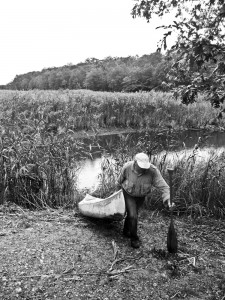
We had a frost last night. The first of the year. I thought it the perfect time to republish the article I wrote for the September 2010 issue of Westview: The New Voice of the West Village. It is a good introduction to how Chinese Medicine considers the seasons, body, emotions and spirit an integral part of assessing health:
Fall—the air gets crisper, the days shorter, we finish up projects started in the spring and begin to prepare for new ones. We harvest the fruits of summer’s heat—apples and mums, pumpkins and corn. It is time to let go of long summer days, open windows, vacations, cookouts and swims in the sea. One of the most inspiring things about Chinese Medicine is becoming aware of the connection between the seasons and the organ systems, our emotions and the spirit. Autumn, in this ancient eastern paradigm of philosophy and medicine is the season of ‘letting go’. The lungs, which are the organ that predominates this season, must be healthy and vital in order to protect the body from colds and flu, allergies, asthma, bronchitis and decreased immune function. Each organ has an associated emotion and the lung is connected with sadness and grief. Sadness that has run well past its normal course can weaken the lung, and unacknowledged or suppressed grief will interrupt its normal function. Like all of the other emotions, a Chinese Medical perspective gives us a different, more expansive and even poetic view of sadness, letting go, and grief. The process of grief is not far removed from a sense of precious beauty and completion whether we are dealing with the end of a loved one’s life, the season of summer or even things like a job or apartment we had our heart set on. It makes us return our focus to what we do have. Lao Tzu, the famous Chinese philosopher writes, “Only in losing do we gain.”
A good practitioner of Chinese Medicine will strengthen the lung with a variety of techniques. Needling a point on the inner side of the arm about two inches above the wrist helps to release constrained emotions. Particular points on the back help to strengthen lung function. Cupping (do you remember the field day the press had when Gwenyth Paltrow was photographed in the backless gown with large round black spots on her skin?) removes dampness. Burning the herb mungwort (moxa) over certain points also helps strengthen the lung. Dietary suggestions will be made according to each person’s unique presentation and constitution. In the best case scenario, one who is prone to colds, flu and allergies will have these issues addressed in the summer before the fall and winter when they become more vulnerable. In ancient China it was the physician’s job to keep his patients healthy. When a patient became sick and died a lantern was hung outside the doctor’s door to let the village know.
As you can see, Chinese Medicine is different from the Western Medical view of disease and its treatment. It is neither better nor worse. The two very often work well together and complement the others way of restoring health. I like to think of Eastern Medicine as Integrative rather than Alternative. After all, it is the oldest and most widely used medicine on the planet and the body of knowledge from which it is derived is thousands of years old and huge. The fact that it is practiced in just about every New York City hospital today is very good news. It means we have the beginning of a dialogue which might just result in a much needed improvement in our mainstream health-care system. I am sure everyone will agree that this would be a good thing, indeed.







Emmett says
In a world where we are faced with daily change, the quote by Lao Tzu, the famous Chinese philosopher, “Only in losing do we gain.” seems appropriate for the season.
I appreciate the awareness you share on Traditional Chinese Medicine. It is wonderful to learn that our health-care system is embracing these complementary medical practices.